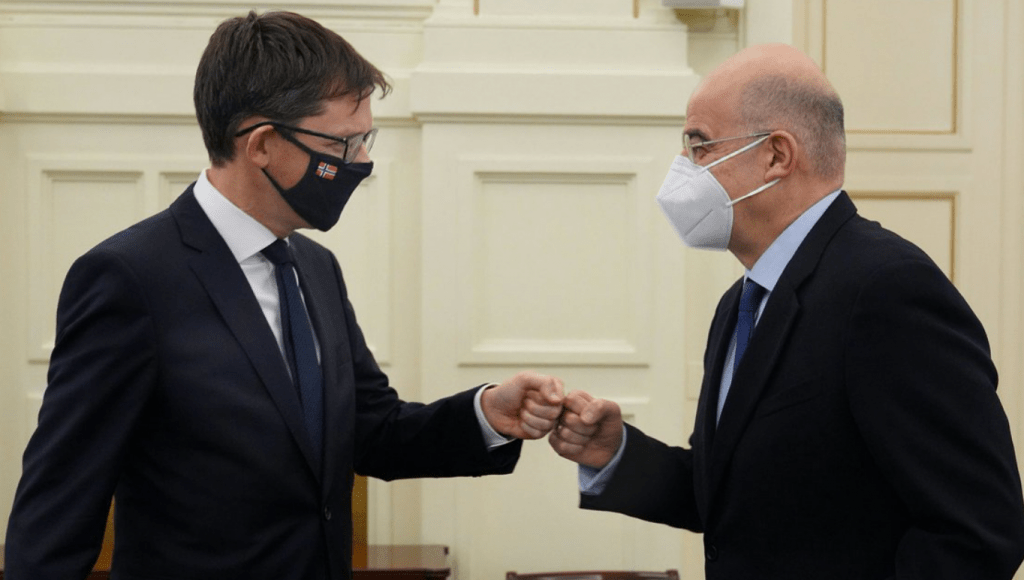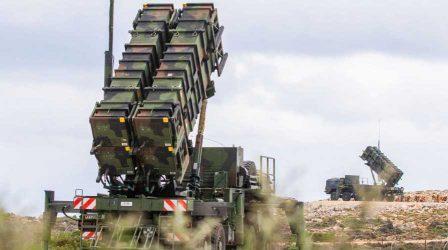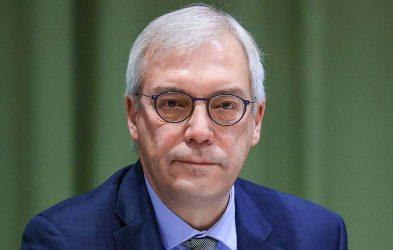Γενικά
Το ViaDiplomacy.gr (εφεξής, “ViaDiplomacy”, “εμείς”, ή “η εταιρεία μας”) θεωρεί ότι η πολιτική απορρήτου είναι σημαντική για τους χρήστες μας και εξηγεί στο κείμενο που ακολουθεί τον τρόπο συλλογής, χρήσης και προστασίας του ιδιωτικού απορρήτου. Αυτή η Πολιτική Απορρήτου καλύπτει την πρόσβαση ή χρήση των ιστοσελίδων και των εφαρμογών μας (“Πλατφόρμα”), όταν γίνεται χρήση αυτών από κάθε συσκευή (“Υπηρεσίες”), ή όταν παρέχονται Προσωπικές Πληροφορίες στην εταιρεία μας. Με την παροχή Προσωπικών Πληροφοριών, αυτόματα συμφωνείτε με το περιεχόμενο της παρούσας Πολιτικής Απορρήτου. Η πολιτική αυτή ισχύει για τους χρήστες της ιστοσελίδας του ViaDiplomacy.
Προσωπικές Πληροφορίες
Με τον όρο “Προσωπικές Πληροφορίες”, εννοούμε κάθε πληροφορία που χαρακτηρίζει έναν ιδιώτη, μεταξύ άλλων το ονοματεπώνυμο, την ταχυδρομική διεύθυνση, την ηλεκτρονική διεύθυνση, και κάθε άλλη πληροφορία δηλωτική του συγκεκριμένου ατόμου. Προσωπικές Πληροφορίες μπορεί επίσης να θεωρηθούν δημογραφικά στοιχεία, όπως η ημερομηνία γέννησης, το φύλο, η περιοχή γέννησης και διαμονής, και άλλα.
Συλλογή Πληροφοριών
Το ViaDiplomacy, είτε απευθείας είτε μέσω τρίτων, συλλέγει, επεξεργάζεται ή διατηρεί Προσωπικές Πληροφορίες από τους χρήστες και κάθε συσκευή που οι χρηστές πιθανώς χρησιμοποιούν για να αποκτήσουν πρόσβαση στις Υπηρεσίες του ViaDiplomacy. Οι Προσωπικές Πληροφορίες που συλλέγουμε ενδέχεται να περιλαμβάνουν τα ακόλουθα: Προσωπικές Πληροφορίες που δίνουν οι χρήστες (είτε χειροκίνητα είτε αυτόματα) όταν χρησιμοποιούν τις Υπηρεσίες μας, Πληροφορίες όπως το ονοματεπώνυμο, ταχυδρομική διεύθυνση, ηλεκτρονική διεύθυνση και άλλες.
Κρατούμε τις Προσωπικές μας Πληροφορίες για όσο χρονικό διάστημα είναι απαραίτητο και σχετικό με τον τρόπο διαχείρησης των Υπηρεσιών της Εταιρείας μας.
Cookies
Όταν εισέρχεστε την Πλατφόρμα μας, η εταιρεία μας (καθώς και εταιρείες με τις οποίες συνεργαζόμαστε) ίσως εγκαταστήσουν αρχεία στον υπολογιστή ή κάποια άλλη συσκευή πρόσβασης που χρησιμοποιείτε. Αυτά τα αρχεία μπορεί να είναι cookies, clear gifs, pixel tags, e-tags, flash cookies, ή άλλα τοπικά αρχεία που παρέχονται από τον περιηγητή σας (browser) ή άλλες συγγενείς εφαρμογές. Χρησιμοποιούμε αυτές τις τεχνολογίες για να σας αναγνωρίσουμε ως χρήστη, να προσαρμόζουμε τις Υπηρεσίες μας για σκοπούς marketing, να διασφαλίζουμε την ασφάλεια του λογαριασμού σας, κτλ.
Αλλαγή ιδιοκτησίας
Αν η εταιρεία μας συγχωνευτεί ή εξαγοραστεί από άλλη εταιρεία, ενδέχεται να μοιραστούμε τις πληροφορίες με εκείνους, σύμφωνα πάντα με την Πολιτική Απορρήτου και τους ισχύοντες νόμους.
Ασφάλεια
Η εταιρεία μας έχει λάβει τα κατάλληλα μέτρα ασφαλείας σε μια προσπάθεια να προστατεύσει τις Προσωπικές σας Πληροφορίες ενάντια σε κάθε προσπάθεια κακόβουλης και ανεξέλεγκτης εισβολής. Ωστόσο, αναγνωρίζουμε ότι κάθε διαδικτυακή συναλλαγή ενδέχεται να περιέχει κινδύνους και καμία μέθοδος αποθήκευσης πληροφοριών δεν μπορεί να είναι πλήρως ασφαλής. Επομένως, δεν μπορούμε να εγγυηθούμε την απόλυτη ασφάλεια των Προσωπικών σας Πληροφοριών μέσω των Υπηρεσιών μας.
Ευαίσθητες Πληροφορίες
Σας ζητούμε να μην μας στέλνετε μέσω email και να μην μας αποκαλύπτετε μέσω τηλεφώνου ευαίσθητες Προσωπικές Πληροφορίες, παρά μόνο μέσα από την Πλατφόρμα μας.
Πολιτική Απορρήτου για Παιδιά
Οι ιστοσελίδες και οι εφαρμογές μας απευθύνται στο ευρύ κοινό, ωστόσο οι Υπηρεσίες μας δεν απευθύνονται σε άτομα κάτω των 18 ετών. Δεν συλλέγουμε εν γνώσει μας Προσωπικές Πληροφορίες χρηστών κάτω των 18. Αν ένα παιδί έχει μοιραστεί μαζί μας Προσωπικές Πληροφορίες, παρακαλούνται οι γονείς ή ο κηδεμόνας του να επικοινωνήσουν μαζί μας για να διαγράψουμε τις συγκεκριμένες πληροφορίες.
Links προς Άλλες Ιστοσελίδες
Αυτή η ιστοσελίδα ίσως περιέχει links προς άλλες ιστοσελίδες, ωστόσο το ViaDiplomacy δεν μπορεί να θεωρηθεί υπεύθυνο για τις πολιτικές ή το περιεχόμενο αυτών των ιστοσελίδων.
Επικοινωνία
Αν έχετε κάποια ερώτηση ή σχόλιο σχετικά με την Πολιτική Απορρήτου μας, μπορείτε να επικοινωνήσετε μαζί μας στο info@viadiplomacy.gr








